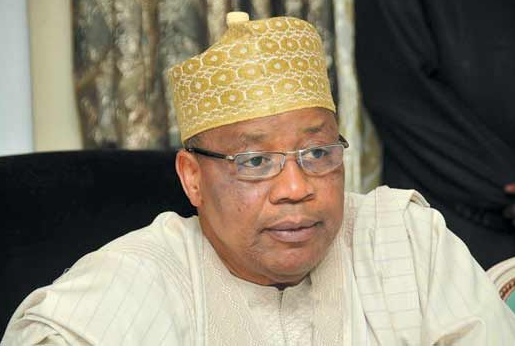Titus Terver Mamadu, a scholar in Religion and Philosophy made it clear in 2006, that Nigeria would have been the best country in Africa and one of the best in the world if not that corruption was institutionalized and most of the leaders never saw anything wrong in it. According to him, Gen. Ibrahim Babangida was the worse head of state Nigeria ever had because of so many atrocities and impunity he committed during his era of dictatorship.
I agree with Mamadu after a comprehensive study shows that Babangida was truly the worse head of state Nigeria ever had. Nigerians are suffering today because of so many wrong and self-centred choices he made.
In August 27, 1985, Buhari’s regime was deposed in a peaceful military coup, led by General Ibrahim Babangida, an army chief of staff. During Babangida’s regime, Nigeria experience unmitigated disaster. Corruption was institutionalized in the country. Barely a year later, precisely on October 19, 1986, Dele Giwa, the founding editor of Newswatch Magazine, was murdered through a letter bomb. The General was charged of Dele Giwa’s death but he claimed not to have had anything to do with his death. The nation was noted of insecurity and looseness in high places within this period. This result was the experience of two coups plot that threatened Babangida’s tenure.
On December 20, 1985, it was announced of the first coup attempt. Mentioned as being involved in the alleged plot was Major Gen. Mamman Vasta, Babangida’s best man, an old school and army course-mate, who was then the minister of the Federal Capital Territory. He was accused, together with 13 other military officers. On March 3, 1986, Vatsa and the nine other officers were executed for the alleged plot.
On 27 July 1990, another batch of 42 military men was wasted. The officers had on 22 April 1990 attempted to overthrow Babangida’s government in a bloody shootout. The plotters led by Major Gideon Orkar, had in their speech read on the aborted coup day, accused the head of state of corruption and politicization of the military and insincerity about his transition programme, among other things. On 13 September, 1990 another batch of 31 retired military men was added to the Orkar gang and executed.
Apart from the so many lives lost during Babangida’s administration, there was a great damage done on the economy whose effects have been felt till date. In 1986, the despot introduced the Structural Adjustment Programme (SAP), as the Panacea for Nigeria’s economic problems. But it was clear after only a few months that Babangida’s administration lacked the strict financial discipline that economic revivalist programmes like SAP entailed. The naira was devalued and all sorts of extra-ministerial parastatals were founded allegedly within the SAP ambit. These included the Directorates of Food, Road, and Rural infrastructure; the Better Life Programme; the National Directorate for Employment and Community Banks. In time, SAP and these agencies had become ready conduit pipes to siphon money from the national treasury. Gradually, the prices of goods were inflated; naira became a worthless currency.
Importantly, there was then an appalling dedication in the living standard of Nigerians. The poor masses suffered from abject poverty and hunger. The out cries were so much that for the common man on the street, SAP was renamed “Stomach Adjustment programme”.
Under Babangida’s administration, foreign debt rose to $30.2 billion. It was this time also that the country witnessed an unprecedented level of capital flight, divestment of foreign investment from key industrial sectors, low capital utilization, outright closure of some industrial concerns and expectedly, unemployment.
Babangida’s rule was again noted with a great deal of inconsistency, chaos and outright activities of armed robbery, fraud and cultism. He was alleged to have siphoned the $12 billion Gulf war windfall even at a time when Nigerians had not enough to live on.
In 1987, two years after assuming power, he announced a transition programme billed to terminate in 1990. But the programme was later extended to 1992 and then to 1993. Billions of naira was spent for each of these programmes that turned out to be abortive. The hope was lost completely when he annulled the June 12, 1993 presidential election, which was to usher M.K.O Abiola as civilian president. When the pressure became so severe on him, he finally bowed out of office and handed over to the interim head of state, Ernest Shonekan.
With this kind of evil, I wonder if someone like Babangida will in any way be elected for any political post in Nigeria if he contests.
We should know that whatever we do today in our respective positions as leaders will go down in history book whether good or bad and will affect us tomorrow. If not that Buhari’s military government was known to have made progressive efforts against corruption and fought against indiscipline, he won’t have had the overwhelming support of Nigerians today.







